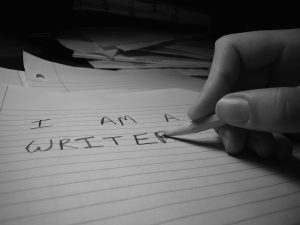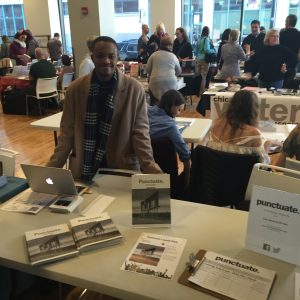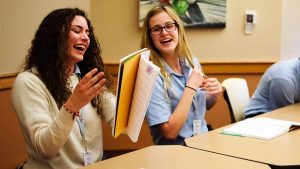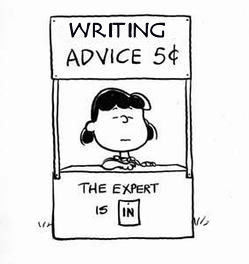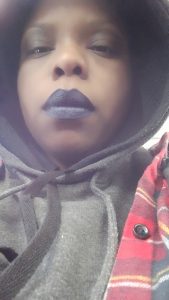People say you can ’t teach talent, that not everybody has the ability to be the next Toni Morrison or F. Scott Fitzgerald, or someday play for the Cubs, or become a famous musician. And perhaps this is true. But if we stop trying to be an esteemed author or a star athlete or a world touring musician, we will awaken these talents that quietly live inside of us. Maybe we won’t be The Best, but we will be enough.
’t teach talent, that not everybody has the ability to be the next Toni Morrison or F. Scott Fitzgerald, or someday play for the Cubs, or become a famous musician. And perhaps this is true. But if we stop trying to be an esteemed author or a star athlete or a world touring musician, we will awaken these talents that quietly live inside of us. Maybe we won’t be The Best, but we will be enough.
Writing seems intimidating. When I stare at a blank page where I am supposed to build worlds and lives, I think that maybe I shouldn’t be doing this after all. But if I start with something, with one thing, everything follows.
In fiction, it always starts with a place.
A suburban street where the sun is always shining and families grill in their backyard.
An empty hospital basement where the fluorescent lights reflect off the linoleum floor.
A kitchen at nighttime with only the light from the moon.
Then characters start to appear.
A little girl with scabbed knees.
A doctor with blood staining her sea-foam-colored scrubs.
A girl with short blonde hair sitting on the counter, and another one with longer hair sitting at the table.
They will start to feel the temperature.
The warmth of the sun is so subtle that she only notices it when she rides beneath the shade of a tree and feels its absence.
The air conditioning raises goosebumps on the doctor’s skin.
The kitchen warms up from the blowing heat as one of the girls pulls off her sweatshirt.
I start to discover what the characters want, no matter how simple or complex it may be.
The little girl wants to see how quickly she can ride her bike from one end of the sidewalk to the other.
The doctor wants to change out of her dirty clothes and drive home.
The girls want to talk about what the next move in their relationship is after they’ve seen that their love is fading.
In nonfiction, it starts with a memory.
Sitting on my grandma’s lap with an I Spy book while we waited for pizza to be delivered.
Driving to Missouri at nighttime while I lied in the backseat, watching the different car lights pass outside the window.
Lying in bed with my girlfriend while the heat in my house wasn’t working, whispering to each other under the covers about our lives, with only the orange light from the streetlight quietly peeking through my window.
The memory can be insignificant, just a fleeting moment, but it is enough. If it stuck with you, it’s almost certain that it will stick with others.
There is a thought that writing and pain go hand in hand, that you write about what hurts. There will always be a feeling of pain that might linger in writing, but if story after story is about suffering, it gets old and repetitive. I’ve written about pain, and suffering, and lost love, and after a while, all of my stories were the same. So I started writing with a feeling of hope. My characters started to love again. They pulled open the curtains; they danced on hardwood floors in their living rooms; they kissed on street corners, and I started to love again. My chest started to expand as I breathed in, and I started to hope again. Writing isn’t just for pain. It is a way to reawaken old memories and see them in a new way as the words meet the page. It is a way to feel again, the good and the bad.
Tabitha Chartos, Assistant Editor

